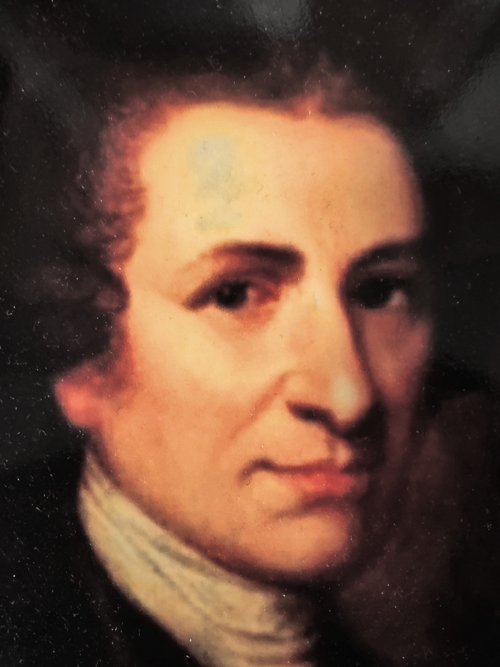Guest Contributor: Jeffery J. Smith, co-founder of the US Green Party and author of the play
Thomas Paine—not Tom Paine as his detractors addressed him—added his voice to the chorus of prominent thinkers calling for an extra income for everyone sourced from ground rent. In the 18th century, Paine’s was a popular voice, inspiring revolt everywhere. His opponents dubbed his career “the Age of Paine”.
Leading reformers advanced “physiocracy” (nature’s rule). To them, it was obvious that the distribution of natural rent created class, decided one’s wealth vs one’s poverty, and conferred political power as consistently as a natural law. Physiocrats dominated debate in the three nations where Paine promoted justice.
In France, Quesnay and Turgot formulated “l’impot unique” (the single tax) on land. Mirabeau the Elder prophesied their discovery would be a “social advance equal to the inventions of writing and money.” (The equal of fire, too?) Voltaire’s character Candide declared, “The fruits of the earth are a common heritage of all, to which each man has equal right.” Rousseau added, “You are undone if you once forget that the fruits of the earth belong to us all, and the earth itself to no one.” The first French Republic used land rent exclusively until the cost of war impelled them to tax commerce, too.
In Britain, Adam Smith wrote, “Ground rents seem a more proper subject of peculiar taxation.” William Blackstone judged “The earth, therefore, and all things therein, are the general property of all mankind.”
In America, two famous friends of Paine shared the same belief. Thomas Jefferson: “Everyone may have land to labor for himself may exact for it such compensation as not only to afford a comfortable subsistence, but wherewith to provide for a cessation from labor in old age.” Benjamin Franklin, bankrupted by his speculation in land (bailed out by friends), converted to physiocracy. Today, the US Social Security Administration recognizes Paine’s proposal as the precursor of the Social Security pension.
Paine’s Common Sense spurred the American colonies to rebel, his American Crisis kept them at it while the war went against them. For these achievements—plus Rights of Man, Age of Reason, and Agrarian Justice—the US Congress bestows the Thomas Paine Award upon authors of clear, inspiring political prose.
In our era, it’d not be books but other media that’d shift a popular paradigm, likely entertainment media. Recall how Gandhi helped the anti-nuclear weapons movement, what Malcolm X did for civil rights, what Milk did for gay marriage, etc. A movie about Paine could do the same for an extra income for all.
A step toward the silver screen is a new stage play, Tom Paine’s Bones, which unlike previous attempts, relates his exciting life—he faced death seven times—in order to reveal his humanitarian ethics as a way to convey his geonomic policies. That is, entertain to enlighten.
To bring the play to your town and enjoy a night at the theater, please get in touch. To help make its premiere in Portland Oregon a success, join the crowd funding campaign. Thanks for you consideration.



Wonderful piece, thank you. It is really important to show how very many of these ideas are compatible with each other and that have been thoroughly studied by a variety of people at different times and different cultures.
I speak as the Vice-chair of the Rocky Mountain Public Bank Institute, that is attempting to convince the Colorado legislature to pass legislation that allows public banks to operate in the state. The idea of a film to be done on Universal Basic Income is very good. The other idea is to collaborate with other kinds of movements. For example there are very well written booklets that give clear, practical, and feasible alternatives to our present ways of conducting ourselves economically and politically: Maximum wage and wealth, debt cancellation, job guarantee, economic democracy, and many others.
I wish those involved in the play very good luck. Thomas Paine is one we should all know much more about.
As an aside, there is the very good song, ‘Tom Paine’s Bones’ by Graham Moore. My favourite rendition is by The Shee
Thanks for the recommendation. I searched for the song and found several dozen versions on Spotify. The Shee was good. I also thought the Trials of Cato had a very good version.